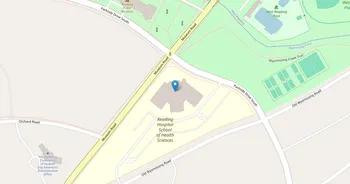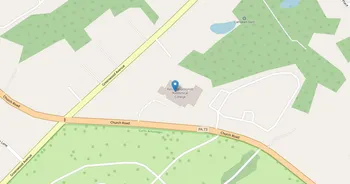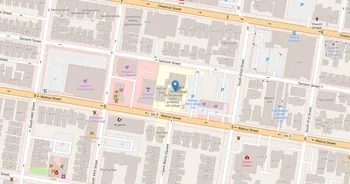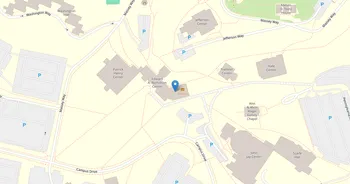Reading Area Community College (RACC) : Overview, Courses, Scholarships & Rankings
About Reading Area Community College
Set in downtown Reading near the river, Reading Area Community College is known for practical, career-ready academics and a down-to-earth vibe. Students dig into general education and applied fields like healthcare, business, technology, and skilled trades, guided by faculty with real-world experience. Campus resources include modern labs, a well-used library, study lounges, and a performing arts venue, plus tutoring, advising, and transfer support that feels personal.
Student life leans active and community-minded: clubs, service projects, gallery shows, live performances, and intramurals keep the calendar busy. The culture welcomes commuters, first-gen students, and adults returning to school, with plenty of spots to grab a coffee and get work done. Career prep has a local tilt, with employer visits, job-shadow options, and connections across the region. Step off campus for walkable blocks, minor-league baseball, riverfront paths, and hilltop views. It helps you roll up your sleeves and get moving.
Key Institutional Details
Contact & Profile
Academic & Institutional
Academic Programs & Fields of Study
Reading Area Community College (RACC) offers 37 degree programs across 18 major academic fields, graduating approximately 491 students annually. The most popular fields by graduate volume are Business (5 programs, 101 graduates), Health (8 programs, 90 graduates), Liberal Arts (3 programs, 63 graduates), Human Sciences (3 programs, 44 graduates) and Psychology (1 programs, 34 graduates). Explore program details, award levels, and graduate demographics below.
Business (5 programs, 101 graduates)
Business Administration, Marketing and Entrepreneurship
| Program Name | Graduates | Gender Distribution | Award Levels | CIP Code |
|---|---|---|---|---|
| Business Administration and Management | 72 |
|
Certificate (1-2 yrs)
Associate's
|
52.0201 |
| Accounting and Business Management | 14 |
|
Associate's
|
52.0305 |
| Accounting | 11 |
|
Associate's
|
52.0301 |
| Accounting and Bookkeeping Technology | 2 |
|
Certificate (1-2 yrs)
|
52.0302 |
| Administrative Assistant Science | 2 |
|
Associate's
|
52.0401 |
Health (8 programs, 90 graduates)
Healthcare Professions, Medical Sciences and Clinical Practice
| Program Name | Graduates | Gender Distribution | Award Levels | CIP Code |
|---|---|---|---|---|
| Registered Nursing | 43 |
|
Associate's
|
51.3801 |
| Substance Abuse Counseling | 11 |
|
Associate's
|
51.1501 |
| Clinical Laboratory Technician | 9 |
|
Associate's
|
51.1004 |
| Medical Insurance Coding | 8 |
|
Associate's
|
51.0713 |
| Licensed Practical Nursing | 8 |
|
Certificate (1-2 yrs)
|
51.3901 |
| Respiratory Care Therapy | 6 |
|
Associate's
|
51.0908 |
| Histologic Technology | 3 |
|
Associate's
|
51.1007 |
| Health Information Technology | 2 |
|
Associate's
|
51.0707 |
Liberal Arts (3 programs, 63 graduates)
Liberal Arts Education, General Studies and Humanities
| Program Name | Graduates | Gender Distribution | Award Levels | CIP Code |
|---|---|---|---|---|
| Liberal Arts and Humanities | 57 |
|
Associate's
|
24.0199 |
| General Studies | 4 |
|
Associate's
|
24.0102 |
| Liberal Arts and Sciences | 2 |
|
Associate's
|
24.0101 |
Human Sciences (3 programs, 44 graduates)
Family Studies, Consumer Sciences and Human Development
| Program Name | Graduates | Gender Distribution | Award Levels | CIP Code |
|---|---|---|---|---|
| Child Care Provider and Assistant | 23 |
|
Other Award
|
19.0709 |
| Child Development | 15 |
|
Associate's
|
19.0706 |
| Child Care Management | 6 |
|
Associate's
|
19.0708 |
Psychology (1 programs, 34 graduates)
Psychological Sciences, Mental Health and Behavioral Studies
| Program Name | Graduates | Gender Distribution | Award Levels | CIP Code |
|---|---|---|---|---|
| General Psychology | 34 |
|
Associate's
|
42.0101 |
Computer & IT (3 programs, 25 graduates)
Computer Science, Information Technology and Cybersecurity
| Program Name | Graduates | Gender Distribution | Award Levels | CIP Code |
|---|---|---|---|---|
| Computer and Information Sciences | 16 |
|
Associate's
|
11.0101 |
| Information Systems Security and Auditing | 7 |
|
Certificate (1-2 yrs)
|
11.1003 |
| Web and Digital Multimedia Design | 2 |
|
Associate's
|
11.0801 |
Security & Safety (1 programs, 25 graduates)
Emergency Management, Law Enforcement and Public Safety
| Program Name | Graduates | Gender Distribution | Award Levels | CIP Code |
|---|---|---|---|---|
| Criminal Justice and Police Science | 25 |
|
Associate's
|
43.0107 |
Physical Sciences (1 programs, 20 graduates)
Chemistry, Physics and Earth Sciences Research
| Program Name | Graduates | Gender Distribution | Award Levels | CIP Code |
|---|---|---|---|---|
| Physical Sciences | 20 |
|
Associate's
|
40.0101 |
Eng. Technologies (1 programs, 19 graduates)
Applied Engineering Technologies and Technical Support
| Program Name | Graduates | Gender Distribution | Award Levels | CIP Code |
|---|---|---|---|---|
| Computer Systems Technology | 19 |
|
Associate's
Other Award
|
15.1202 |
Public Services (1 programs, 15 graduates)
Public Administration, Social Work and Community Services
| Program Name | Graduates | Gender Distribution | Award Levels | CIP Code |
|---|---|---|---|---|
| Social Work | 15 |
|
Associate's
|
44.0701 |
Tuition, Fees & Estimated Costs
Overview of tuition rates, housing, and other annual education expenses for undergraduate and graduate students
Financial Aid & Student Support
Summary of scholarships, grants, student loans, and financial aid statistics for undergraduate students
Student Success Metrics
Graduation rates and post-graduation earnings to help assess student outcomes and long-term value of education.
Loan Burden & Repayment Outcomes
Breakdown of loan repayment rates and student debt levels by income and dependency status.
Frequently Asked Questions
Find answers to the most common questions about Reading Area Community College (RACC)
How much does it cost to attend Reading Area Community College (RACC)?
The annual tuition at Reading Area Community College (RACC) is $10,890 for in-state students and $12,030 for out-of-state students. When including room and board, books, and other expenses, the total estimated cost is approximately $12,690 for in-state students and $13,830 for out-of-state students. Additional costs include room and board $10,800 (off-campus) and books and supplies $1,800.
Data based on IPEDS program completions for 2022-2023 academic year. Tuition and cost estimates are approximate and may not include all fees, personal expenses, or transportation costs.
What academic programs and degree levels does Reading Area Community College offer?
Reading Area Community College (RACC) offers 37 academic programs across 18 major fields of study, with available degree levels: Certificate (1-2 yrs), Associate's, Other Award.
Most popular program areas include:
- Business Administration, Marketing and Entrepreneurship (5 programs)
- Healthcare Professions, Medical Sciences and Clinical Practice (8 programs)
- Liberal Arts Education, General Studies and Humanities (3 programs)
- Family Studies, Consumer Sciences and Human Development (3 programs)
- Psychological Sciences, Mental Health and Behavioral Studies (1 programs)
Data based on IPEDS program completions for 2023-2024 academic year. Numbers reflect programs where students graduated, not all offered programs.
What financial aid and scholarships are available at Reading Area Community College?
Reading Area Community College (RACC) provides financial aid to 7% of first-time, full-time students, with average grants of $5,471 and average loans of $4,929.
Average financial aid amounts by type:
- Pell grants: $5,414
- State/Local grants: $2,267
- Institutional grants: $2,421
- Federal loans: $4,929
The university supports 270 students with grants and 58 students with loans annually.
Data based on IPEDS for 2022-2023 academic year. Financial aid amounts and percentages may vary by program, enrollment status, and individual circumstances.
What is the average salary for Reading Area Community College graduates?
Reading Area Community College (RACC) graduates earn a median salary of $32,565 after 6 years and $39,082 after 10 years.
The salary range 10 years after graduation spans from $21,317 (25th percentile) to $58,433 (75th percentile), with top earners reaching $62,600 (90th percentile).
Data based on IPEDS for 2022-2023 academic year. Salary data reflects graduates who received federal financial aid (approximately 60% of all graduates). Actual earnings may vary significantly based on program, location, and individual circumstances.
Related Universities




Found something useful? Help others discover it too! Share with friends, on social media, or save for later - every share helps someone find the information they need.